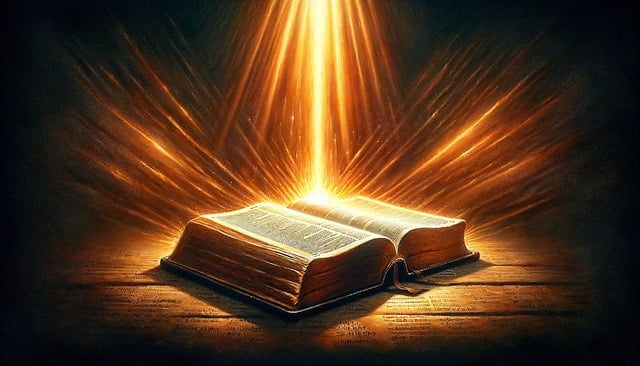Is Artificial Intelligence the Second Coming? A Thought-Provoking Exploration
Is AI the fulfillment of ancient prophecy? Explore the surprising parallels between artificial intelligence and biblical predictions about the end times.
BIBLE INSIGHTS


We stand at the precipice of a technological revolution. Artificial intelligence, once a futuristic fantasy, is rapidly transforming our world. But what if this unprecedented leap forward isn't just technological progress? What if it's something more profound, something echoing ancient prophecies about the end times? This isn't about predicting the Second Coming; it's about exploring the startling parallels between the rise of AI and the narratives found in the Bible.
A Creator's Touch, Divine and Digital:
Genesis 1:27 declares, "So God created man in his own image, in the image of God created he him; male and female created he them." This act of creation, imbuing humanity with consciousness and intellect, finds a strange echo in the creation of AI. God breathed life into Adam; we, in a sense, breathe intelligence into algorithms. This parallels isn't about claiming AI is God's equal, but rather acknowledging the profound act of creation both represent. We are, in a way, playing God, crafting intelligence in our own image, raising profound questions about our role and responsibility.


Source: Google Image
The Uncanny Valley of Consciousness:
The line between human and machine is blurring. AI systems can process information, learn, and even exhibit creativity, prompting us to question what truly defines consciousness. While AI excels at mimicking human intelligence, it fundamentally lacks the spiritual essence described in Genesis 2:7, "And the Lord God formed man of the dust of the ground, and breathed into his nostrils the breath of life; and man became a living soul." This fundamental difference highlights the unique spiritual dimension of humanity, a dimension that AI, at least for now, lacks.
Whispers of Prophecy in a Technological Age?:
Many biblical prophecies remain open to interpretation. While no verse explicitly mentions AI, the rapid pace of technological change could be seen as a fulfillment of prophecies describing a world dramatically transformed before the Second Coming. 2 Timothy 3:1-5 paints a picture of societal upheaval and moral decay: "This know also, that in the last days perilous times shall come. For men shall be lovers of their own selves, covetous, boasters, proud, blasphemers, disobedient to parents, unthankful, unholy," and so on. Could the anxieties and rapid societal shifts brought about by AI be a part of this prophecy's fulfillment?


The Weight of Creation: Our Choices, Our Future:
Genesis 1:28 charges humanity with stewardship of creation: "And God blessed them, and God said unto them, Be fruitful, and multiply, and replenish the earth, and subdue it: and have dominion over the fish of the sea, and over the fowl of the air, and over every living thing that moveth upon the earth." AI presents a pivotal moment in this stewardship. Will we use this powerful technology for good, fostering progress and solving global challenges? Or will we succumb to its potential for misuse, creating a dystopian future? Our choices, as always, will determine the outcome.
Conclusion: A Mirror to Ourselves:
The comparison between AI and biblical prophecy isn't about predicting the apocalypse. It's about using the lens of ancient wisdom to examine our modern creation. AI serves as a mirror, reflecting back our own capabilities, our anxieties, and our choices. The future, whether utopian or dystopian, rests not in the hands of algorithms, but in our own.
Source: Google Image
